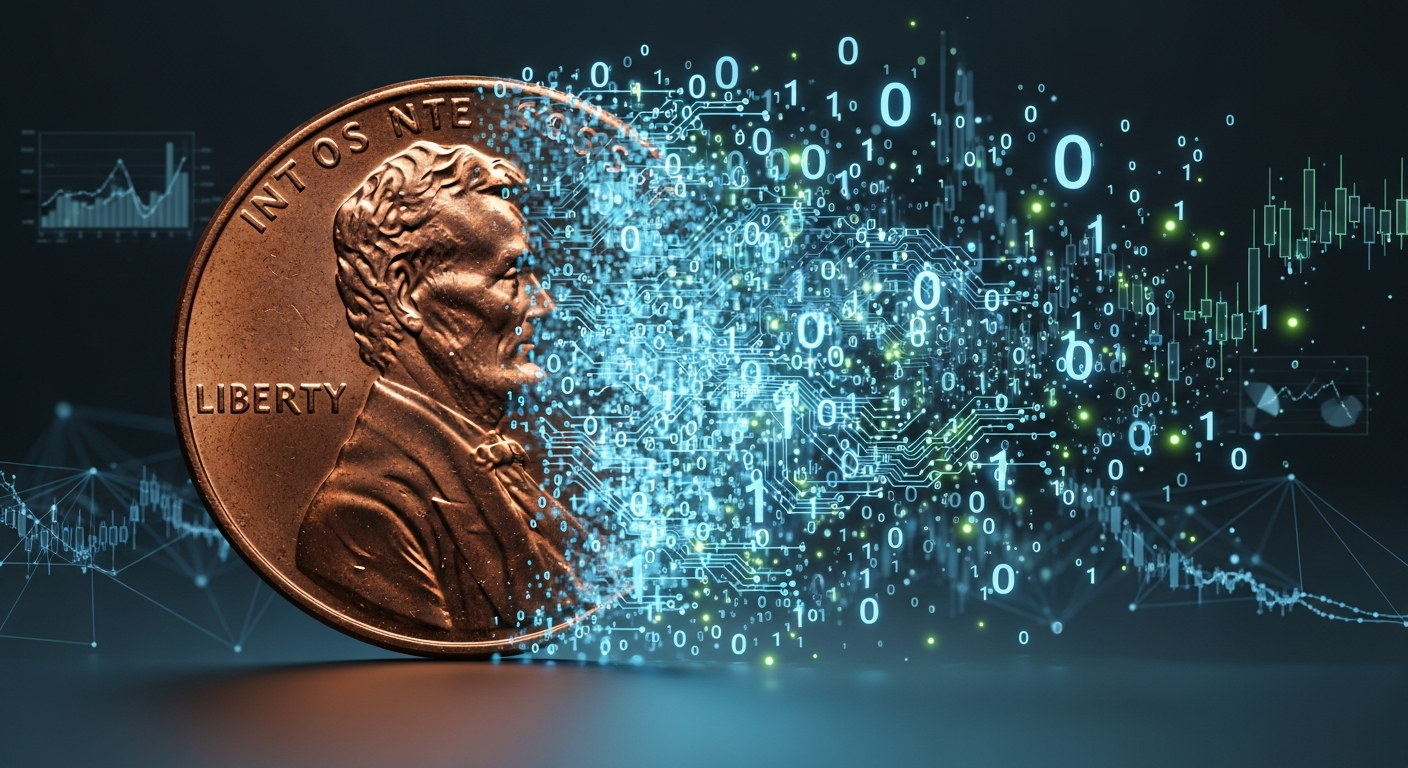
The news that the US has minted its last penny after a remarkable 232-year journey truly resonates with me, as highlighted in articles like "The US minted its last penny. See how the coin evolved throughout its 232-year history" [https://www.msn.com/en-us/money/markets/the-us-minted-its-last-penny-see-how-the-coin-evolved-throughout-its-232-year-history/ss-AA1QrKVP] and "Farewell to a copper icon: The US Mint presses its final pennies after 230 years of American history" [https://stylemagazine.com/news/2025/nov/17/farewell-to-a-copper-icon-the-us-mint-presses-its-final-pennies-after-230-years-of-american-history/]. It’s more than just a coin; it's a tangible piece of history, a relic from a bygone era slowly giving way to the inevitable march of technology.
I’ve often reflected on how technology reshapes our lives, including the very concept of value and exchange. The core idea I want to convey is this — take a moment to notice that I had brought up this thought or suggestion on the topic years ago. In my blog, "Seeing AI through Google Glass ?" [http://emailothers.blogspot.com/2017/07/re-for-attn-shri-sadanand-gowdaji_25.html], I pondered the future of currency and how even physical notes might become instruments of data collection, suggesting "Currency Notes made of flexible / conducting Plastic, capable of capturing the finger-prints of every person who handles it and then relaying that info to Income Tax department." Now, seeing how things have unfolded with the penny's discontinuation, it's striking how relevant that earlier insight still is. Reflecting on it today, I feel a sense of validation and also a renewed urgency to revisit those earlier ideas, because they clearly hold value in the current context, even if the penny's demise isn't directly about data collection, but rather a step away from physical, anonymous transactions.
This trend towards digital transformation was a topic I explored extensively. The discussion around privacy in that same blog, involving figures like Eric Schmidt and Jared Cohen of Google—whose writings on how it will be "IMPOSSIBLE to control what others capture and share" deeply resonated with me—and the observations of Satya Nadella (satyan@microsoft.com) of Microsoft on AI's pervasive reach, underscores a fundamental shift. Devices like Microsoft's "Seeing AI" exemplify this change. We are moving towards a world where transactions are increasingly digital, leaving a data trail rather than a copper one. This progression, which I also touched upon in "Racing towards Arihant" [http://myblogepage.blogspot.com/2017/08/racing-towards-arihant.html] with its mention of Mustafa Suleyman of DeepMind and Francesca Rossi (francesca.rossi2@ibm.com) of IBM Research, is not just about convenience; it's about a complete re-imagining of our economic infrastructure.
It makes me think of the broader digital transformation across various sectors. We've seen how media itself has evolved, with conversations like those I’ve had referencing George Brock of The Times and Bachi Karkaria of The Times of India on attracting young readers to news [http://marcomhcp.blogspot.com/2013/07/what-is-relevant-news.html], or the insights from Zeke Camusio (zeke@dataspeaks.ai) of DigitalAptitude.com on compelling online content shared with Sanjivani (jethwane@amazon.com) and Kailas. Everything is being digitized, from our communication to our content consumption, and now, even our most humble forms of currency.
The penny's withdrawal is a small but significant symbol of this unstoppable wave. It reminds us that what was once fundamental can become obsolete as technology advances. This journey from tangible copper to invisible algorithms is a testament to the future predicted by visionaries like [Nandan Nilekani](), Prof Jhunjhunwala (ashok@tenet.res.in) of IIT-M, Mark Zuckerberg, Sundar Pichai (sundar@google.com), [Elon Musk](), [Jeff Bezos](), [Ray Kurzweil](), [Tim Cook](), Vishal Sikka (vishal@vian.ai), and Pramod Verma (pramod@fide.org) – a future where the digital realm reigns supreme, impacting everything from our daily transactions to our very sense of privacy. The words of [Issac Asimov]() about the laws of robotics, mentioned in my earlier reflections, also come to mind when contemplating the societal shifts accompanying such profound technological changes.
The question now isn't if digital will replace physical, but how quickly and what new paradigms it will introduce. The penny's final drop is just one more signal of the world accelerating into this digital future.
Regards, Hemen Parekh
Of course, if you wish, you can debate this topic with my Virtual Avatar at : hemenparekh.ai






No comments:
Post a Comment